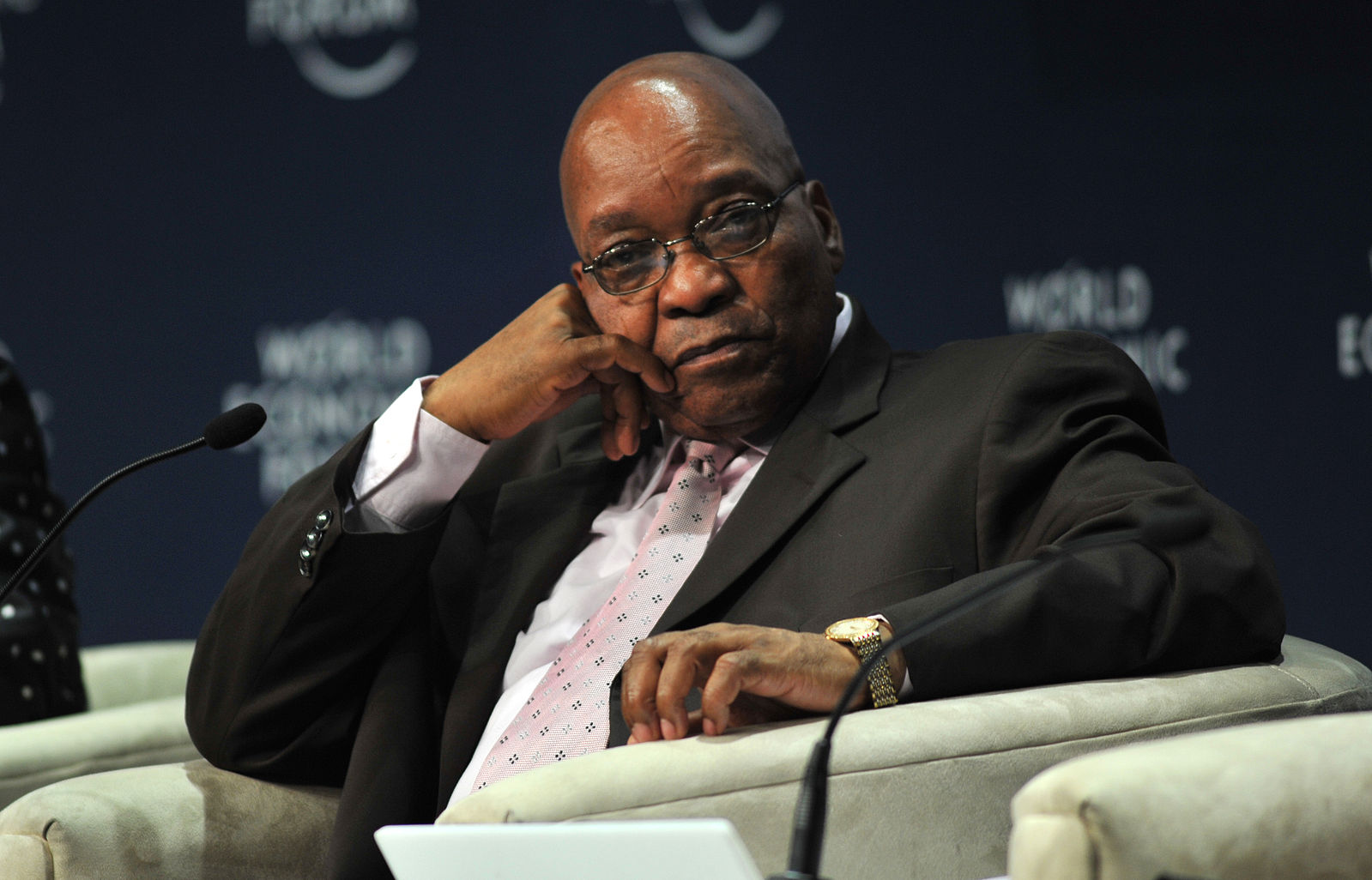News
Dealing with Zuma: It's a choice between a political and constitutional crisis
There are now two possible scenarios: Zuma is arrested and charged for his failure to honour the Constitutional Court ruling, or he is allowed to defy the courts.

Research Director, The Brenthurst Foundation

Director, The Brenthurst Foundation

Former president Jacob Zuma has thrown down the gauntlet, saying he will defy a Constitutional Court order that he testify at the Zondo Commission into State Capture. If he is permitted to get away with this, it will plunge South Africa into a constitutional crisis and threaten the post-democratic order.
Zuma had challenged the commission's insistence that he testify and had claimed that its chairperson, Judge Raymond Zondo, was a personal friend and therefore ought to recuse himself.
His challenge failed spectacularly when the Constitutional Court ruled last week: “The former president is firmly placed at the centre of investigations”, going on to say that, “the allegations investigated are so serious that if established a huge threat to this country's fledgling democracy would have occurred”.
Then came its most telling words: “The former president's conduct is a direct breach of the rule of law. In our system, no one is above the law.”
Zuma, after mulling over the ruling over the weekend, has publicly stated that he will defy the ruling, implying that he believes that he is, indeed, “above the law”.
Zuma has decided to move the discussion out of the judicial and into the political terrain, saying he was moved to issue his statement after receiving “an overwhelming number of messages of support from members of the African National Congress and the public at large following the recent extraordinary and unprecedented decision of the Constitutional Court where it effectively decided that I as an individual citizen, could no longer expect to have my basic constitutional rights protected and upheld by the country's Constitution.”
His argument is a long and winding one which he has made before several judicial and quasi-judicial fora and relates to his grievance with the former Public Protector, Thuli Madonsela, whom he regards as the spearhead of a vast judicial conspiracy to rob him of his right to do as he pleased when he was president.
There is, he alleges, “a special and different approach to specifically deal with Zuma” that has been passed on from Madonsela to Zondo. The rationale for this conspiracy is not elucidated.
“The Commission into Allegations of State Capture led by the Deputy Chief Justice, has followed in the steps of the former Public Protector in how it also has continued with creating a special and different approach to specifically deal with Zuma. The chairperson of the commission, unprovoked, has called special press conferences to make specific announcements about Zuma. This has never happened for any other witness,” said Zuma.
Moving swiftly from this tortuous conspiracy theory to more familiar political terrain, Zuma compares his persecution to 'how the apartheid government passed the General Laws Amendment Act 37 in 1963 which introduced a new clause of indefinite detention specifically intended to be used against then PAC leader, Robert Sobukwe'.
Not only did Zondo (appointed to head the commission by Zuma without objection on the recommendation of the Chief Justice, Mogoeng Mogoeng) conspire with Madonsela (appointed to the position of Public Protector by Zuma), but so did the Constitutional Court, which, according to Zuma, “also mimics the posture of the commission in that it has now also created a special and different set of circumstances specifically designed to deal with Zuma by suspending my Constitutional rights rendering me completely defenceless against the commission”.
Moving swiftly from this tortuous conspiracy theory to more familiar political terrain, Zuma compares his persecution to “how the apartheid government passed the General Laws Amendment Act 37 in 1963 which introduced a new clause of indefinite detention specifically intended to be used against then PAC leader, Robert Sobukwe”.
Sobukwe was targeted for his “ideological stance on liberation” while he, Zuma, “on the other hand am the target of propaganda, vilification and falsified claims against me for my stance on the transformation of this country and its economy”.
Zuma goes on to say: “The wrath visited upon me as an individual knows no bounds as my children and those known to be close to me have been specifically targeted and harassed to the extent that they all have had their bank accounts closed for no particular reason other than that they are known to be associated to me.”
The fact that those bank accounts were used to launder billions in public money for the Guptas and others appears to have escaped Zuma.
He really wants us to believe that he is being targeted because he is the torch-bearer of a radical movement which is the only true representative of liberation. This is despite the publicly expressed scepticism of his status by left parties to the struggle such as Cosatu.
Zuma's objections to the ruling may be farcical and the self-pity might be a little sad, but they could nonetheless cause grave harm.

In the background is Zuma's realisation that his “Stalingrad” approach to deferring legal consequences for his actions is running out of road and he will soon be in the dock facing an actual corruption trial. A prison cell is suddenly a real possibility.
Whereas Zuma's previous confrontations with the law have always accepted the legitimacy of the courts, this response is a clear break, signalling that he is ready for a new phase in his battle to stay out of prison.
This reversion to “big-man” liberation populism is in direct conflict with the country's constitutional order which holds that the law is supreme and applicable to all who break it, claims to liberation credentials notwithstanding.
By claiming that “the laws of this country are politicised even at the highest court in the land”, Zuma is announcing a political struggle against this system which begins with his refusal to abide by the order by the Constitutional Court.
There are now two possible scenarios: Zuma is arrested and charged for his failure to honour the Constitutional Court ruling or he is allowed to defy the courts.
It is a choice between a political crisis and a constitutional crisis.
If Zuma is arrested, he appears prepared to take the fight into the ANC and attempt to overturn the political order. If he is not arrested, it will signal that the constitutional order is weakened, and the post-1994 order is undone. It will amount to little more than a constitutional coup d'etat.
This article was originally posted on The Daily Maverick.

